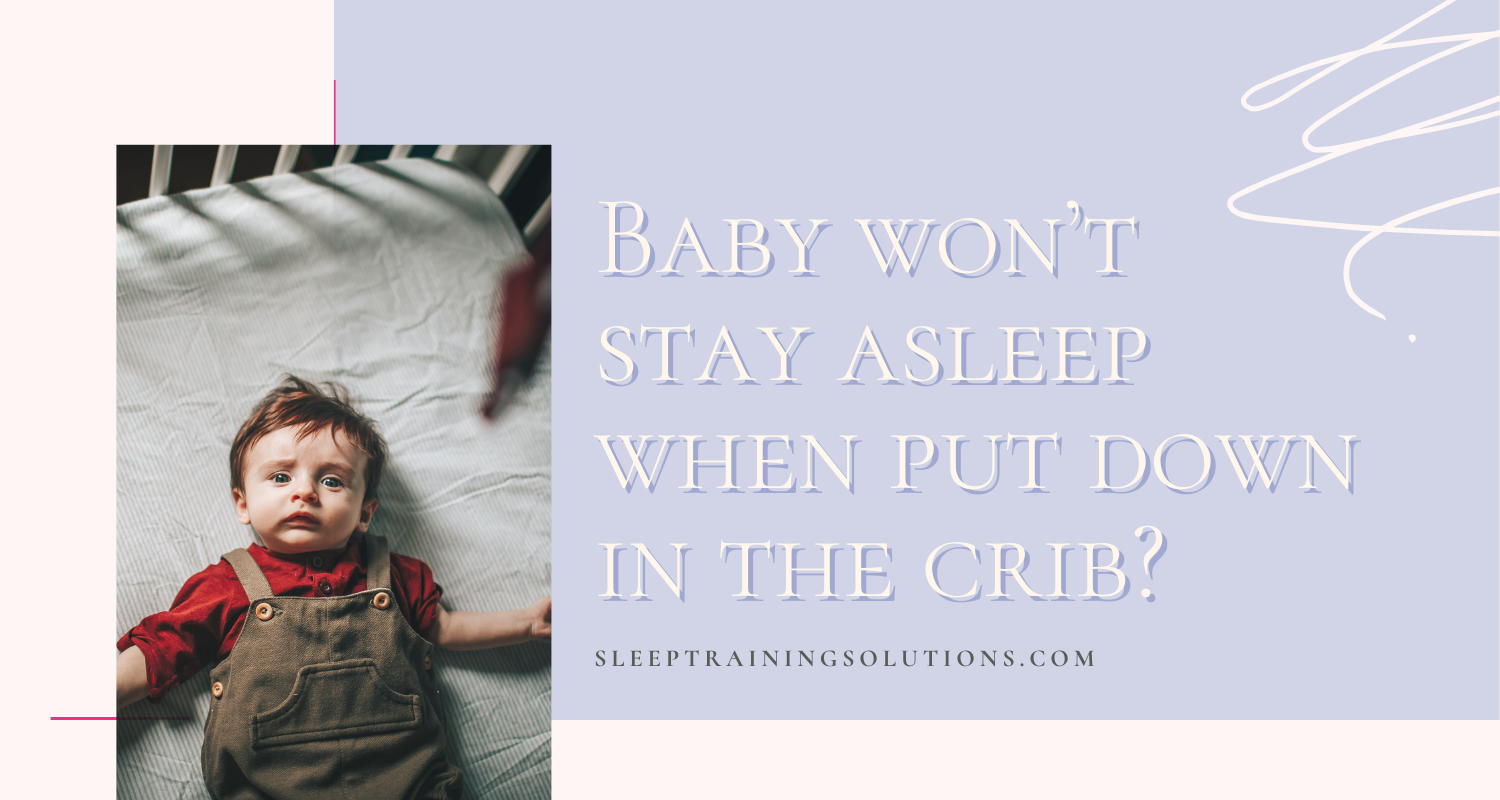I want to start sleep training, but…
When I talk with new families who are interested in sleep training, half are ready to get started…yesterday! And the other half have some objection they need to work through first.
In their minds, they’re thinking, “I know my child isn’t getting enough sleep, I’m certainly sleep deprived too, my marriage is affected because we’re cranky with each other, BUT…”
I’ve tried everything – read all the books, tried every method – and nothing’s worked. Why would it be any different now?
If my toilet broke, I could pull some manuals off the internet, watch some YouTube videos and try to fix it myself, fingers crossed that I hadn’t forgotten any critical steps. I’m fairly certain I wouldn’t be able to fix it on the first try, and if it was a really big issue, I may not be able to fix it at all because I’m not a plumber!
Same goes for sleep training. You’ve had the very best intentions, gathering information from books, websites and friends, but now you not only have information overload, but you’re trying to make a sleep plan from all these pieces which is like putting together a puzzle with pieces from several different sets! You need a coherent plan taking into consideration your child’s temperament, age, your parenting style and what you’ve tried before from someone who does this day in and day out and can determine which method and strategy will work best for your child.
I don’t want to do cry it out
Great. Me neither. Glad we’re on the same page!
That’s one of the biggest sleep training myths out there – that CIO and sleep training are synonymous. But the fact is that there are several, gentler methods and CIO is typically the one you try last, not first! But just because you’re not doing CIO doesn’t mean this will be a cry-free experience. Know that you’ll be there to comfort your child and the crying will be short-lived as those new sleep skills emerge.
Thinking about starting sleep training? Download your free PDF to help set you up for success!
I’m afraid my baby won’t be as attached to me
Do you think that after just one night of changing your baby’s sleep habits she won’t love you as much? Is that all it would take?
Would all the cuddles you give her, all the food you provide, all the diapers and clean clothes she wears, all the playtimes and bath times, all the kisses and laughter be for nothing because of a few nights of protest?
The truth is that making changes to anyone’s sleep habits will always be met with some resistance. (If you told me I’d have to give up my favorite pillow, I’d certainly not give it up willingly!) So yes, it’s safe to assume that your baby isn’t going to happily accept the fact that you’re no longer going to rock her on the exercise ball for an hour each and every night, but as long as you’re a loving and attentive parent in the first place, the love will absolutely endure. In fact, most people find that once their baby is sleeping well, they’re even happier and healthier than before and the parent-child bond is even stronger because everyone is well-rested!
I think I’m just going to wait – he’ll eventually become a better sleeper on his own
A research study published in 2012 in the journal Pediatrics found that many children do not outgrow sleep issues (previous research had found that children will start to outgrow sleep issues in 3-5 years).
When you’re procrastinating, weeks or months can easily go by and you realize you haven’t made any steps forward and which is frustrating. If you keep doing what you’re doing expecting a different result (which by the way is the definition of insanity!) or just waiting and hoping that things will be better in a month, I can almost guarantee that you’ll be in the same boat (or a more leaky, sinking boat!).
Think about the logic – if your child needs you to feed and rock her to sleep every night for 45 minutes, is it plausible that one day she pushes that away, points to her crib and snuggles in and magically falls asleep on her own? That’s not a likely scenario because all along she’s needed you to do something, not by choice or strong will, but because she doesn’t think she has the skills to do it on her own. She isn’t going to get that confidence and knowledge on her own – the nudge she needs to be able to do that comes from you in the form of teaching her how to fall asleep without those sleep props.
The one time I do suggest waiting two weeks – assuming your child was a good sleeper previously – is during milestones (starting to roll, sit up, crawling, etc), teething, going through a nap transition, etc. After two weeks, if one of those was the culprit for affecting sleep, it should have gotten better by the two week mark.
I think sleep training is just going to be too stressful for all of us
For those who say that a few nights of crying are just too stressful, you’ve really got two choices:
1. Make some changes
This usually involves a few nights of your child crying for a bit at bedtime and for night wakings. After a few nights, most children start to learn how to fall asleep independently and how to self-soothe back to sleep in the middle of the night and the crying stops completely shortly thereafter.
In this scenario, the total amount of stress felt amounts to some crying for a few nights. As a mom, I know it’s very hard to hear your child cry, but knowing it’s the type of crying that means give me what I want so I can go to sleep, not the I’m hurt cry does help.
2. Do nothing
In this scenario, you continue to feed/rock/use a pacifier/bounce your child to sleep every night. Your child wakes up 1 – 10 times per night, and needs to be fed/rocked/a pacifier/bounced to sleep each time to get back to sleep, and because of the strong association to sleep props, you can’t get your child to go back to sleep after 5am.
In this scenario, both you and child are subjected to months (or even years) of systematic sleep deprivation where neither of you ever gets enough consolidated sleep to wake up and feel rested or refreshed. Babies and toddlers need enough sleep to have a happier disposition, but more importantly, for growth and development. And if these sleep habits continue into the school years, there is evidence that it correlates with obesity, memory, and trouble focusing in class.
So in a quiet moment when your child is asleep and you can really think, ask yourself what sounds worse: A few nights of crying…or months/years of depriving your child (and you!) of a good nights’ sleep? I can’t tell you how many of my clients have said on Night 3 or 4, after their child had a 12 hour night sleep, how grateful they were that they didn’t quit. That their child is so much happier during the day and the feeds are more productive during the day.
If one or more of these “buts” have been holding you back from taking the simple steps needed to create long term, positive change for your child’s sleep, I really hope I’ve been able to see things from a different perspective.
And – as always – I’m here for you when you’re ready to get started.
Related Posts:
This post is for informational purposes only and may not be the best fit for you, your child and/or your personal situation. It shall not be construed as medical advice. The information and education provided here is not intended or implied to supplement or replace professional medical treatment, advice, and/or diagnosis. Always check with your child’s physician or medical professional before trying or implementing any information read here.






